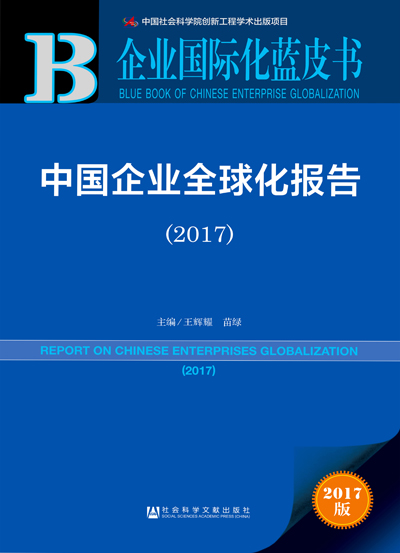Step-by-step to enter Belt and Road markets
The participation of Chinese enterprises in the development of the Belt and Road Initiative involves successive echelons of participation, and private enterprises are increasingly involved in the initiative, the Report on Chinese Enterprises Globalization indicates.
|
The 2017 edition of the Report on Chinese Enterprises Globalization. [Photo/ccgidea.org.cn] |
The Center for China and Globalization, together with Social Sciences Academic Press, launched the 2017 edition of this blue book on Wednesday in Beijing.
State-owned enterprises in sectors such as energy and infrastructure construction are the first tier to enter the markets of countries and regions involved in the initiative. They take the lead in driving the second echelon, the manufacturing industry, into the target market. Science and technology, services and capital gradually become the third echelon.
According to a CCG survey, 73 percent of the enterprises are positive about the investment situation of the Belt and Road Initiative and are willing to put in more money in the future. Among the ways in which enterprises can participate in the investment operation, product exports, project contracts, joint ventures and the establishment of wholly-owned enterprises take a larger share.
China's privately-run science and technology enterprises have also started to speed up their investment in the initiative, as the report shows.
It also says that more and more Chinese enterprises have chosen to jointly explore overseas markets and have formed a new mode of complementing each other’s advantages. Therefore, the report suggests a platform should be provided to reduce potential investment costs and risks for the enterprises that plan to go abroad jointly.
Currently, the main purposes of Chinese enterprises going overseas are to obtain advanced technology, high-end talent, resources, market channels and advanced management experience. The globalization of Chinese enterprises, however, should be not only an export of labor-intensive products but also an all-round development and design of the entire industrial chain.
According to Wang Huiyao, director of the center, as more Chinese enterprises step into the global market, their business activities such as strategic layout and resource allocation will gradually increase throughout the world. Accelerating globalization in the entire industrial chain can be one of the strategies that allow Chinese enterprises to stand out from global competition.
